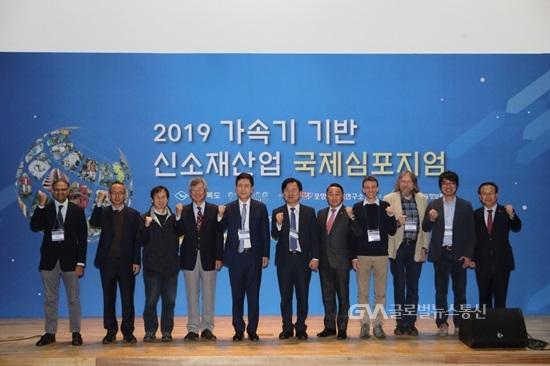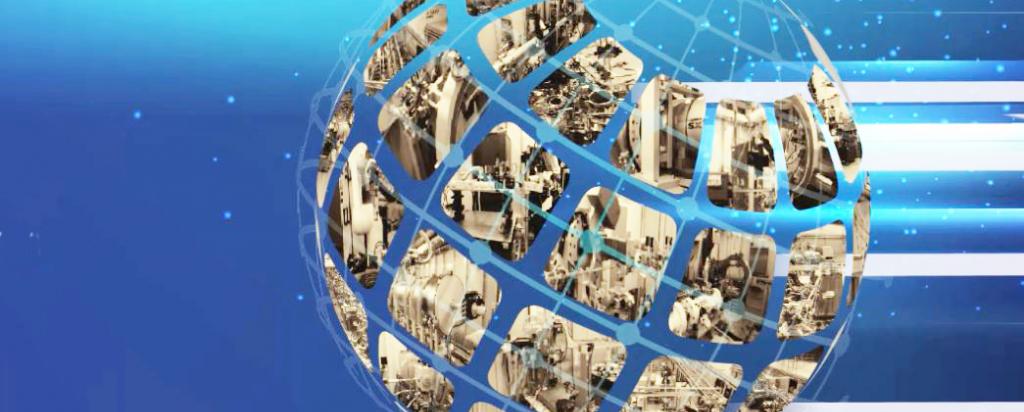
ANSTO scientist Dr Max Avdeev was among the experts who work on next-generation batteries to participate in an international symposium held recently in Pohang City in South Korea.

Dr Max Avdeev, (fourth from right) Image courtesy of Pohang Accelerator Research Institute
The 2nd International Symposium on Synchrotron Applications in the Materials Industry was hosted by the Pohang Accelerator Laboratory (PAL), which operates both the Korean synchrotron Pohang Light Source (PLS II) and X-ray Free Electron Laser (PAL-XFEL)
“The Symposium turned out to be a high profile event with the Mayor of Pohang, the Director of PAL and other officials attending,” said Avdeev.
“The main purpose of the annual meeting is to improve PAL’s links with industry and the central government and translate basic research into innovations.”
“There was a lot of interest in neutrons from the attendees, which may be a good opportunity for ANSTO to engage with users from South Korea.”
The facilities in Pohang are used every year to substantially improve Korea's ability to develop new materials through joint cooperation and networking with global industry and academic institutes.
At the symposium, Avdeev was among eight invited international experts who shared research results for the development of next-generation batteries. He presented on the X-ray and neutron diffraction techniques and atomic modelling in battery research.
South Korea launched an accelerator-based next-generation battery development project in May to develop next-generation battery materials, such as all-solid-state batteries and lithium metal batteries with high capacity and high stability to overcome the limitations of current lithium-ion batteries.
There are plans to establish a dedicated beamline for the development of next-generation batteries.
